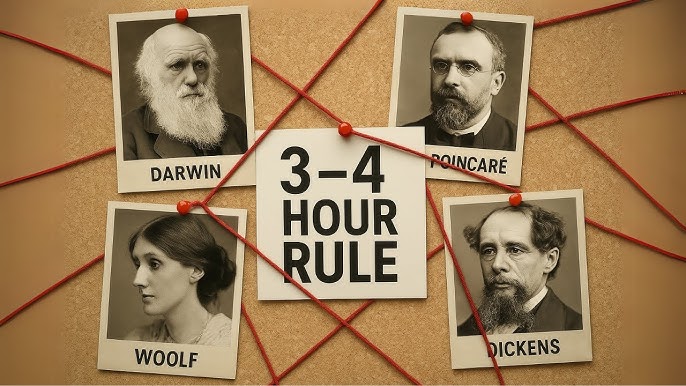
"These days, we hear much said on social media - sure­ly too much - in favor of the "hus­tle cul­ture" and the "grind mind­set" (or, abbre­vi­at­ed for max­i­mum effi­cien­cy, the "grind­set"). Ded­i­ca­tion to your work is to be admired, pro­vid­ed that the work itself is of val­ue, but the more of a day's hours you devote to it, the like­li­er returns are to dimin­ish."
""You almost cer­tain­ly can't con­sis­tent­ly do the kind of work that demands seri­ous men­tal focus for more than about three or four hours a day," Burke­man writes on his site. If you do work of that kind, it would behoove you to "just focus on pro­tect­ing four hours - and don't wor­ry if the rest of the day is char­ac­ter­ized by the usu­al scat­tered chaos.""
Hustle culture promotes long hours, but dedication only benefits when the work itself has value. Increasing daily hours of effort leads to diminishing returns. Many notable thinkers sustained about three to four hours of concentrated work per day. High-quality mental tasks generally cannot be performed consistently beyond three or four focused hours. Protecting a four-hour block of concentrated work maximizes output while accepting scattered activity for the remainder of the day. Adopting this approach requires an internal psychological shift to stop demanding more peak performance time and to abandon the idea that extra squeezing guarantees superior status.
Read at Open Culture
Unable to calculate read time
Collection
[
|
...
]